The GEO Blue Planet EU coordinator, Audrey Hasson, supported by EU4OceanObs, co-hosted two side events during the All-Atlantic 2021 R&I for a Sustainable Ocean High-level Ministerial and Stakeholders Conference. The side events brought experts and stakeholders together to present and discuss challenges and opportunities for addressing Sargassum and marine debris across the Atlantic Ocean and its coastal areas. These are two serious growing problems affecting the health of the Atlantic Ocean, the blue economy (fisheries, tourism, etc.), and the lives of coastal communities.
For each of the two themes, a first session presented state of the art scientific knowledge and information, monitoring and forecasting capabilities, impacts and future challenges. In the second session, experts presented solutions focusing on informed mitigation and decision-making. Both events closed with a panel discussion between stakeholders and the scientific experts to find opportunities for collaboration and co-design solution strategies.
Challenges and opportunities in addressing the spread of Sargassum across the tropical Atlantic Ocean, 2 June
This fruitful event brought together 105 participants from 29 different countries. For the recording, speaker presentations, take-away messages, and further resources, click here.
Sargassum is here to stay. Sustainable management of Sargassum influx requires both local action and international coordination and collaboration. A strong inter-regional cooperation between the Wider Caribbean and West Africa countries is essential – Cesar Toro (IOCARIBE)
Challenges and Opportunities in monitoring the sources and pathways of Marine Debris in the Atlantic Ocean, 3 June
125 participants from 33 countries attended the event. For the recording, speaker presentations, take-away messages, and further resources, click here.
In the combat against marine debris, monitoring is essential to identify products found in the ocean and in coastal regions that need to be banned as well as to evaluate the effectiveness of bans. This is very much the case for the European Commission’s Single-Use Plastic Directive, which tackles the 10 single-use plastic items most commonly found on Europe’s beaches. Ocean and coastal monitoring continue to play a critical role to guide and evaluate this informed EU policy. Where sustainable alternatives are easily available and affordable, single-use plastic products will be banned from 3 July 2021.
Monitoring of marine litter quantities and impacts is an integral part of any successful Strategy to reduce both. Monitoring is directly relevant for designing measures, and for assessing their effectiveness. National and regional data collection and monitoring activities should be adequate and compatible. This should be also reflected in a future efficient global architecture to fight plastic pollution – Michail Papdoyannakis (European Commission).
Both events placed ocean and coastal monitoring at the centre of the discussion. It is not only about academic research or citizen science, highlights Christopher Corbin (UNEP Cartagena Convention), it is about data being collected in a sustained matter and informing review of existing policy, ensuring better decision making and identifying emerging threats and opportunities.
The GEO Blue Planet EU Coordinator leads the GEO Blue Planet Working Group on Marine Debris and co-leads the one on Sargassum.





